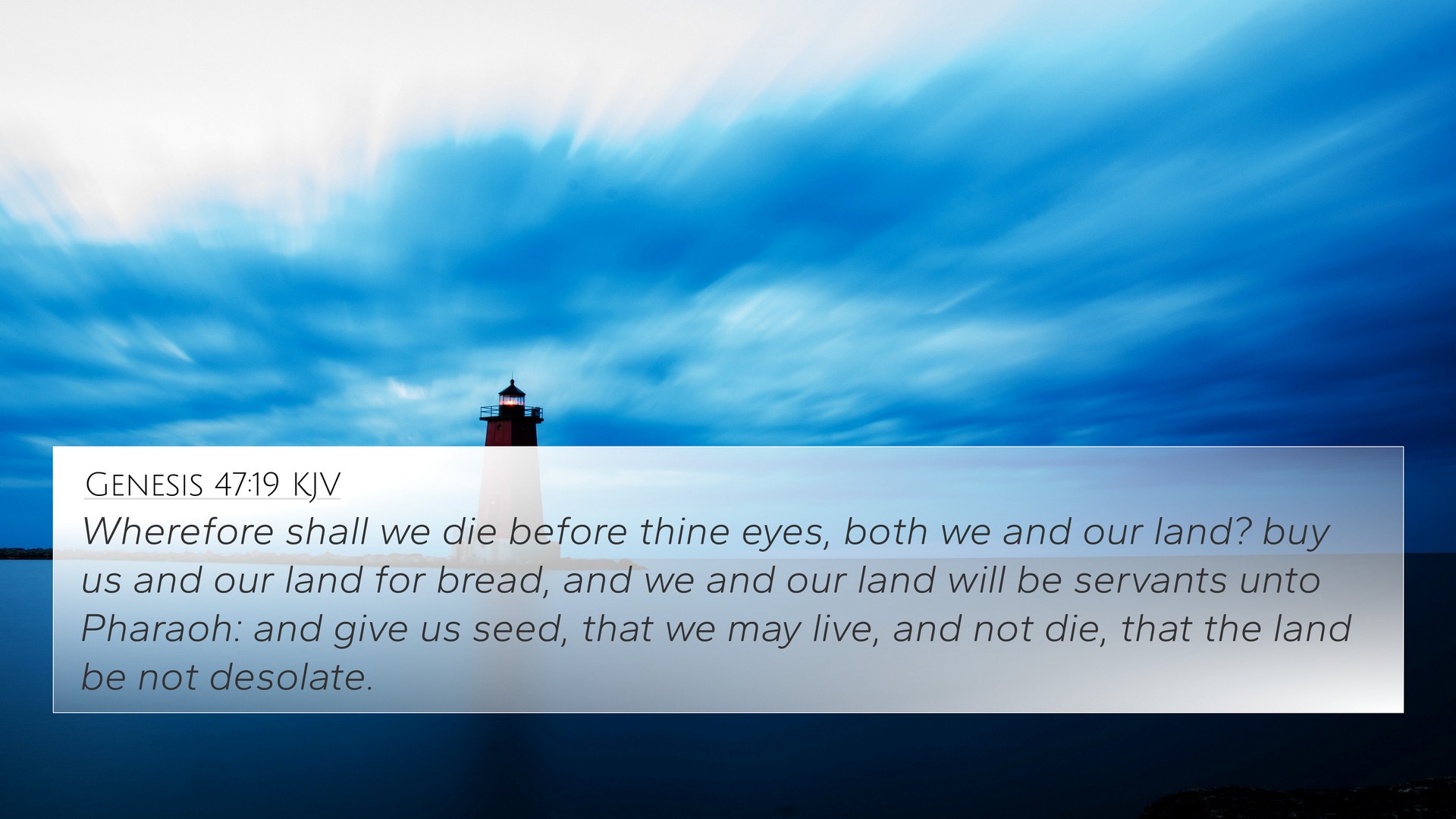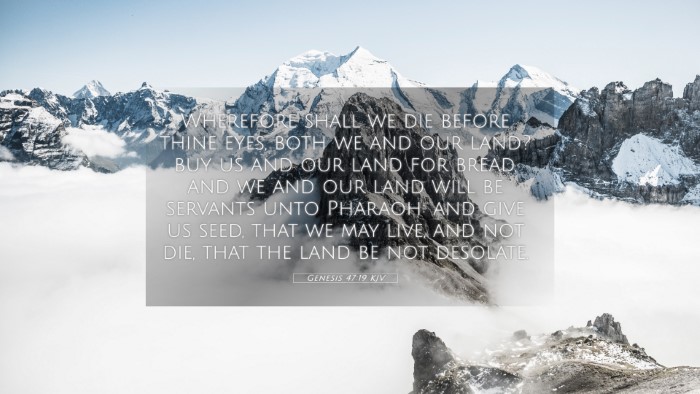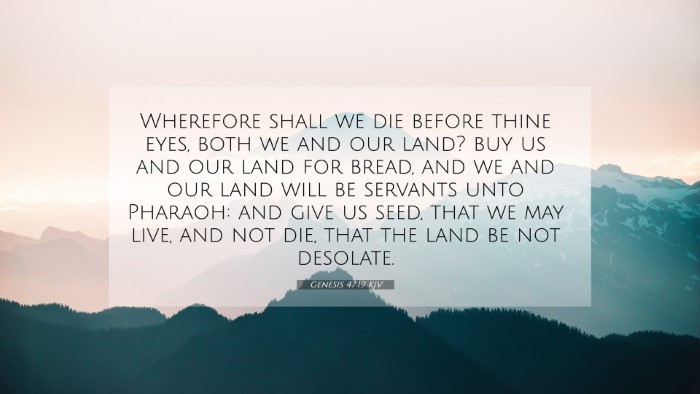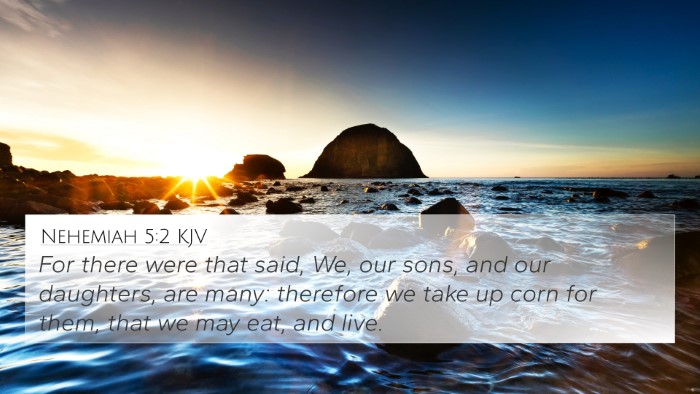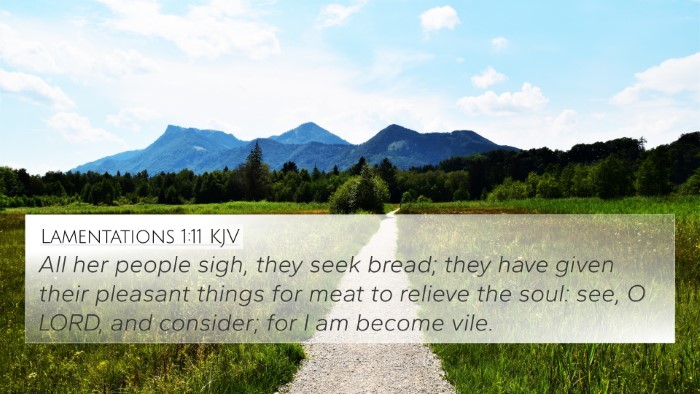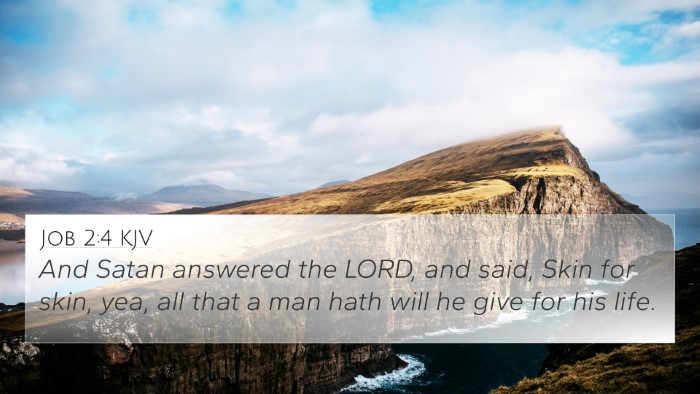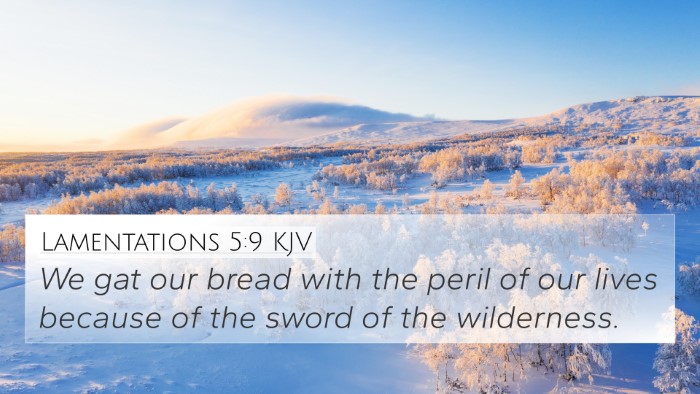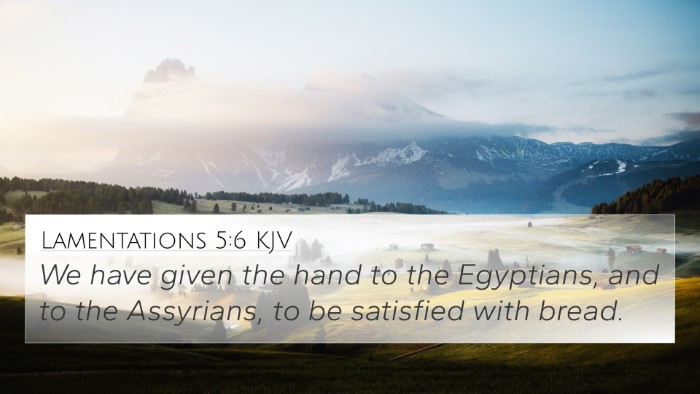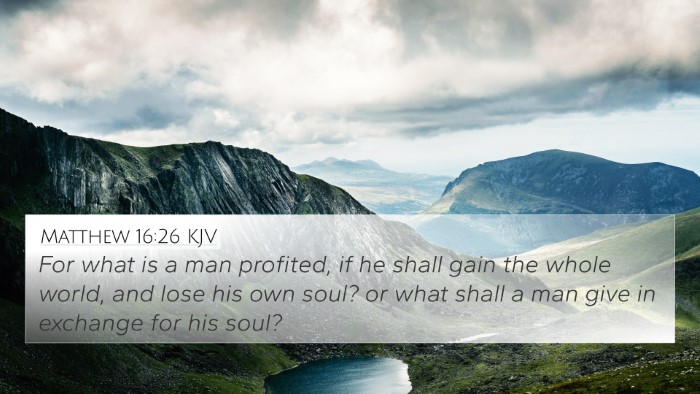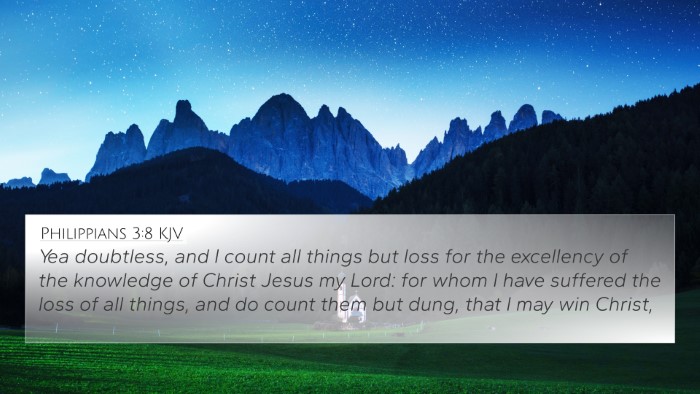Understanding Genesis 47:19
Genesis 47:19 states, “Why should we die before your eyes, both we and our land? Buy us and our land for food, and we with our land will be servants to Pharaoh. Give us seed, that we may live and not die, and that the land may not be desolate.”
Verse Meaning Summary
This verse occurs during a critical time in the narrative of Joseph and the famine affecting Egypt. The people of Egypt, desperate for food, plead with Joseph to save them and their land. Their request signifies not only a plea for survival but also their willingness to become servants in exchange for sustenance. Commentators explore themes of desperation, dependence on leadership, and the social dynamics in desperate circumstances.
Commentary Insights
-
Matthew Henry: Henry notes that the Egyptians exemplify a profound sense of urgency as their lives are at stake. Their submission to Joseph illustrates a broader theme of servitude and national loyalty in times of crisis. They seek sustenance, showing that one’s survival often requires sacrifice, even of autonomy.
-
Albert Barnes: Barnes emphasizes the implications of the Egyptians’ offer to Joseph, highlighting their desperation and helplessness. He points out that this reflects a significant transition for them, moving from self-sufficiency to reliance on a foreign power. It poses questions about the nature of governance and the welfare of the state's inhabitants.
-
Adam Clarke: Clarke provides insight into the cultural and historical context of servitude in Egypt. He discusses the implications of their request for land and seed, recognizing it as a barter indicative of their dependence on Joseph's administration during the famine, which brings into focus the themes of leadership and humanitarianism.
Cross-References
Genesis 47:19 resonates with numerous Bible verses that highlight themes of servitude, desperation, and the dynamic between rulers and subjects. Notable cross-references include:
- Exodus 1:11 - The Israelites becoming servants in Egypt.
- Leviticus 25:55 - The Lord emphasizes the Israelites' need for Him as their liberator.
- 1 Samuel 8:10-18 - Israel's desire for a king illustrates dependency on leadership.
- Matthew 20:25-28 - Jesus teaches that leaders must serve those they govern.
- Romans 6:16 - Paul discusses the concept of being slaves to righteousness versus sin.
- Philippians 2:7 - Christ taking the form of a servant demonstrates humility.
- James 1:27 - Encouragement to care for orphans and widows highlights social responsibility.
Thematic Connections
The themes presented in Genesis 47:19 can be explored through a variety of interrelated Biblical texts. Here are some thematic connections to consider:
- Dependence and Sovereignty: The plea of the Egyptians emphasizes humanity's dependence on God’s provision (Matthew 6:11).
- Servitude and Leadership: The transition from autonomy to servitude parallels God's call for leaders to serve rather than be served (Matthew 23:11).
- Community and Survival: The communal plea signifies collective vulnerability reminiscent of Acts 2:44-45 where believers shared everything.
Reflection and Application
As we reflect on Genesis 47:19, it prompts us to evaluate our own dependencies and the relationships we share within our communities. It challenges us to consider how we respond in crises, both as leaders and as followers. The verse invites us to think critically about our societal structures, especially in times of need.
Tools for Further Study
For those interested in exploring how to effectively find cross-references in the Bible, here are some helpful tools:
- Bible Concordance - A reference tool that lists Biblical terms and where they are found.
- Bible Cross-Reference Guide - Assists in identifying links between scriptures.
- Bible Study Methods - Various methods of cross-referencing for deeper study.
Engaging in comparative Bible verse analysis can enhance understanding and provide greater insight into the interconnectedness of biblical truth.
